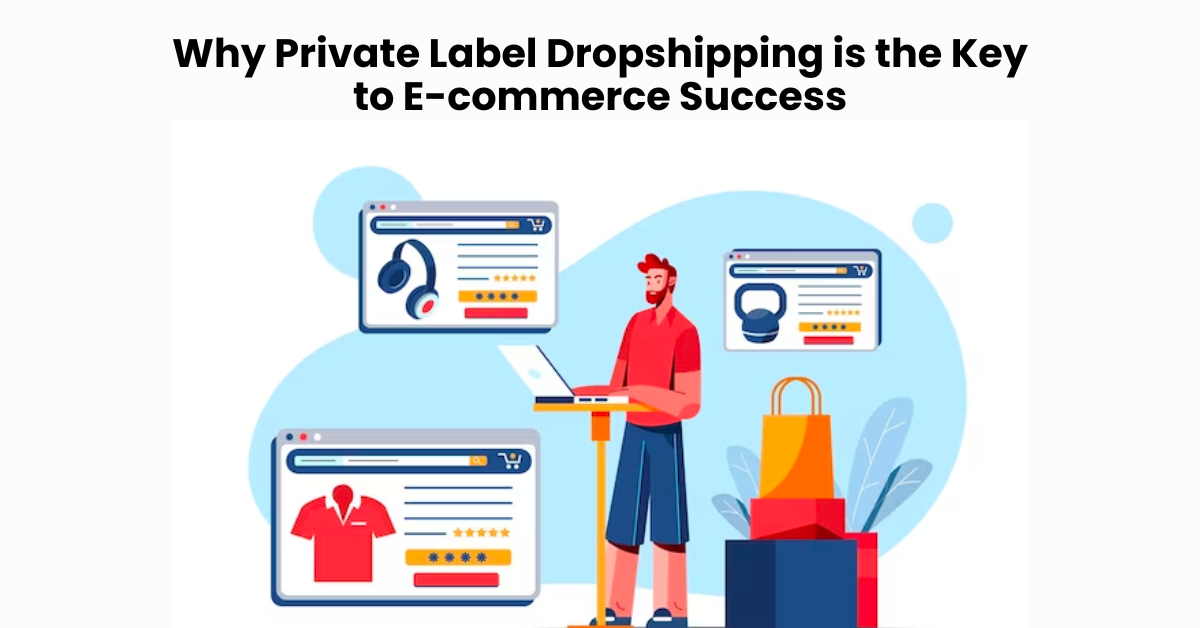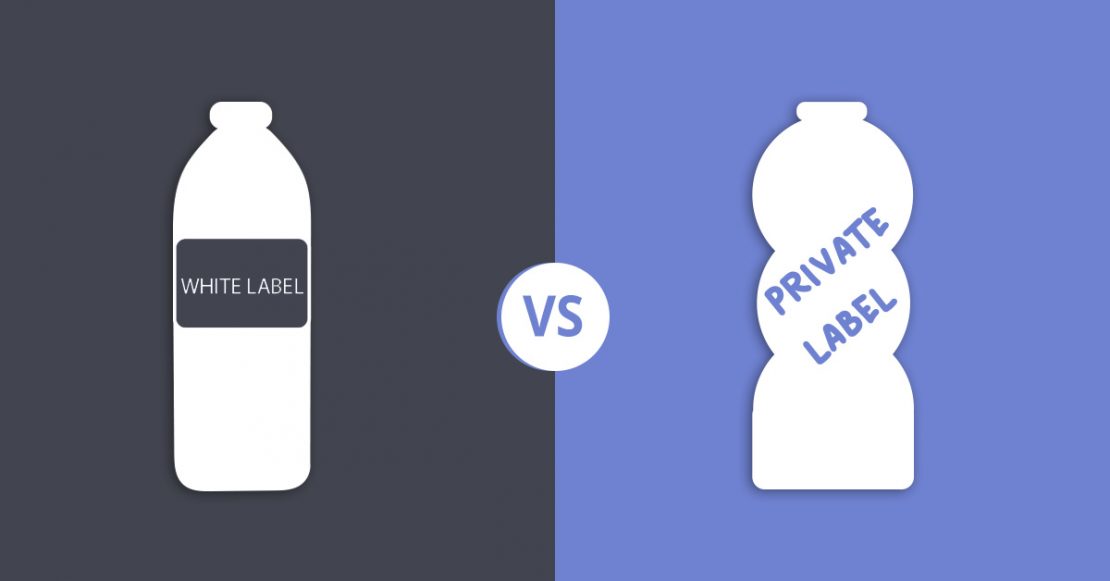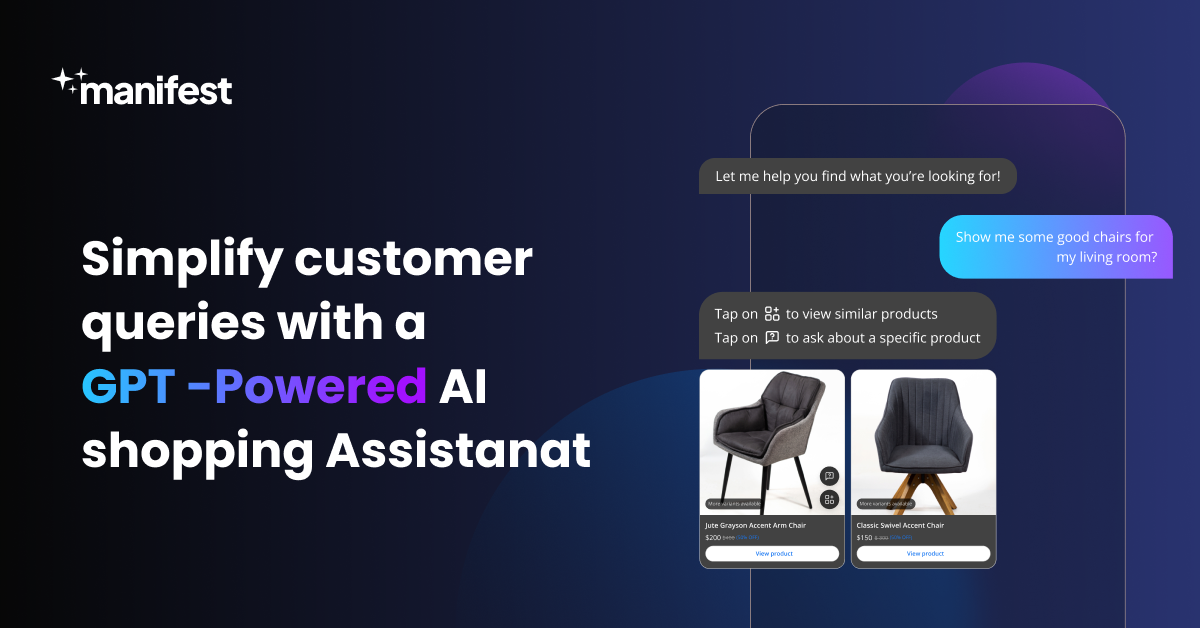Why Private Label Dropshipping is the Key to E-commerce Success

Imagine discovering a little-known village market where each stall, despite its tiny size, provides unique things not available anywhere else. This is the core of private label dropshipping in the huge world of e-commerce. Unlike the bustling, crowded paths of conventional retail products, private label dropshipping offers a less traveled, yet potentially lucrative path. According to a 2023 study, businesses who use private label methods get a 10% improvement in earnings margins when compared to those that market generic items. This strategy, analogous to discovering hidden jewels in a market full of mass-produced commodities, makes a convincing argument for its expanding relevance in e-commerce. By deeper into this technique, we reveal the nuances that make private label shipping more than just a trend, but a critical component for success.
What is Private Label Dropshipping?

Private label dropshipping is a business model where a retailer sells products under its own brand, but these private label dropshipping products are manufactured and shipped by a third party. In this model, the retailer doesn't handle the actual product; instead, they focus on branding and customer relations. When a customer places an order, the retailer forwards it to the supplier, who then ships the product directly to the customer. This approach allows retailers to offer unique products without the need for inventory storage or large upfront investments in product development. The key advantage is the ability to create a distinctive brand identity, as the products feature the retailer's brand, setting them apart from generic items in the market. This strategy is particularly appealing for entrepreneurs looking to carve a niche in the competitive e-commerce landscape.
Advantages of private label dropshipping for e-commerce businesses

- Brand Control: Retailers have complete control over their brand identity, including packaging and branding on products, which helps in building a recognizable brand.
- Higher Profit Margins: Since products are sold under the retailer's brand, they often command higher prices, leading to better profit margins compared to selling generic or branded products from other companies.
- Product Differentiation: Private label dropshipping allows businesses to offer unique products, differentiating them from competitors and reducing direct competition.
- Reduced Inventory Risks: There's no need to hold inventory, which minimizes the risk of overstocking or being stuck with unsold products.
- Flexibility in Product Offerings: Retailers can easily test and switch products based on market trends and consumer preferences without significant financial implications.
- Enhanced Customer Loyalty: Branded products often encourage customer loyalty. Consumers who love a specific private label product are likely to return for repeat purchases.
- Scalability: Businesses can scale up easily without worrying about inventory space or large investments in stock.
- Supplier Relationships: Retailers can develop strong relationships with suppliers to ensure product quality and consistency, which contributes to customer satisfaction.
- Targeted Marketing: With distinct products, businesses can develop more targeted marketing strategies that resonate with their specific audience.
- Faster Response to Market: Being able to quickly adapt and introduce new products gives private label dropshippers an edge in responding to changing market trends and consumer demands.
How Private Label Dropshipping can help Differentiate your Brand?

Here is how it can helps:
- Unique Brand Identity: Dropshipping in private label allows you to sell products under your own brand name. This creates a unique identity for your business, distinguishing it from competitors who may be selling similar, generic products.
- Customization Opportunities: With private labeling, you have the flexibility to customize products according to your brand vision and customer preferences. This can include packaging, design, and even specific product features, offering a more personalized experience to your customers.
- Better Control Over Pricing: Since you’re not competing with identical products in the market, private label dropshipping gives you more control over your pricing strategy. You can set prices that reflect your brand’s value and quality, potentially leading to higher profit margins.
- Customer Loyalty: Customers tend to develop loyalty to brands that offer unique products and experiences. By offering the best private label dropshipping products that are exclusive to your brand, you can foster a stronger connection with your customer base.
- Reduced Competition: Private labeling can reduce direct competition since you're not selling the same branded products that many other retailers are offering. This can lead to a more focused marketing strategy and a clearer path to reaching your target audience.
- Quality Control: Having a say in the manufacturing process means you can ensure a certain level of quality for your products. High-quality products are crucial for building a strong, reliable brand.
- Market Adaptability: The ability to quickly adapt and change your product offerings based on market trends and customer feedback is a key advantage. Private label dropshipping allows for faster response to market shifts, keeping your brand relevant and up-to-date.
Private label vs White label dropshipping

Certainly! Here's a comparison of Private Label and White Label Dropshipping in a tabular form:
| Aspect | Private Label Dropshipping | White Label Dropshipping |
|---|---|---|
| Product Customization | High level of customization in product design, packaging, and branding. | Limited customization; standard products are rebranded. |
| Brand Identity | Strong brand identity with unique products that are exclusive to your brand. | Brand identity is less distinct, as the same products may be sold by multiple retailers under different brands. |
| Initial Investment | Higher due to costs associated with product development, customization, and branding. | Lower, as it involves less customization and no development costs. |
| Time to Market | Longer, as it involves product development and branding processes. | Shorter, ideal for those looking to quickly enter the market. |
| Ideal For | Entrepreneurs who want to create a unique brand and have specific product visions. | Those looking for a quick, cost-effective way to enter the market with less emphasis on product uniqueness. |
| Market Differentiation | High, as products are unique to your brand. | Lower, due to the generic nature of the products. |
| Control Over Production | Greater control over product aspects like quality, design, and packaging. | Limited control, as the products are pre-made and standard. |
| Business Focus | Focused on product development, customization, and brand building. | Focused on sales, marketing, and distribution of existing products. |
Private Label vs DTC brands
Certainly! Here's a comparison of Private Label and Direct-to-Consumer (DTC) brands in a tabular format:
| Aspect | Private Label Brands | Direct-to-Consumer (DTC) Brands |
|---|---|---|
| Definition | Brands that are manufactured by a third-party but sold under a retailer's own branding. | Brands that create, market, and sell their products directly to consumers, bypassing intermediaries. |
| Control Over Product | Limited control; dependent on third-party manufacturers for product specifications. | Full control over product design, manufacturing, and specifications. |
| Customer Relationship | Primarily managed by the retailer; the manufacturer has little to no direct interaction with customers. | Direct and often personalized relationship with customers, enhancing brand loyalty. |
| Marketing Strategy | Relies on retailer’s marketing channels; less focus on brand story. | Heavy emphasis on brand story and values; direct marketing to consumers. |
| Pricing | Often more competitive, as costs are lower due to third-party manufacturing. | Potentially higher price points due to additional costs of direct marketing and distribution. |
| Distribution | Distribution is typically through the retailer's channels. | Sold directly to consumers, usually through online platforms. |
| Customization | Limited customization options due to reliance on third-party products. | High potential for customization, catering to specific consumer needs and preferences. |
| Inventory Management | Retailers do not hold inventory; products are shipped directly from the manufacturer to the customer. | Brands often manage their own inventory, requiring more logistics coordination. |
| Quality Control | Quality may vary as it’s dependent on the manufacturer. The retailer has less control. | Greater control over quality, as brands oversee the entire process from creation to distribution. |
| Brand Identity | Brand identity is built by the retailer, but is often less distinct due to the nature of private label products. | Strong brand identity, as DTC brands are closely tied to their unique products and values. |
5 Best Private-label Dropshipping Suppliers
Here are five notable private-label dropshipping suppliers, along with brief descriptions for each:
Printful
Printful specializes in on-demand printing and dropshipping services. They offer a wide range of customizable products, including clothing, accessories, and home decor. Printful is ideal for businesses looking to offer custom-designed merchandise without inventory overhead.
Alibaba
Alibaba is a global marketplace connecting buyers with manufacturers and wholesalers, many of whom offer private label options. They provide a vast array of products across various categories, making it a versatile choice for diverse product sourcing.
SaleHoo
SaleHoo is a comprehensive directory of wholesale and dropshipping suppliers, including many who offer private labeling. They provide a curated list of suppliers, ensuring reliability and quality, along with tools and support for market research.
Oberlo
Oberlo is a dropshipping platform that integrates with Shopify. They offer a wide range of products with private label options, along with tools for easy product import and order fulfillment, simplifying the dropshipping process.
Modalyst
Modalyst specializes in connecting online stores with suppliers of high-quality goods, including many offering private label products. They are known for their focus on trendy, quality products and have a streamlined integration with several e-commerce platforms.
How to Improve your Customer Conversion rate in Private Label Dropshipping?

Here's a breakdown of how to improve customer conversion rates in private labelling dropshipping, specifically through the use of a tool like Manifest AI:
- Target Audience Understanding:
- Use Manifest AI to analyze customer data.
- Identify buying patterns and preferences for tailored product recommendations and personalized marketing.
- Website User Experience Optimization:
- Employ Manifest AI for enhancing website navigation and layout.
- Analyze customer navigation patterns to suggest improvements, making the site more user-friendly.
- Efficient Customer Service:
- Implement Manifest AI-driven chatbots for instant customer support.
- Handle inquiries and resolve issues quickly, improving customer satisfaction and trust.
- Inventory Management with AI:
- Utilize Manifest AI for predictive analytics in inventory management.
- Ensure popular items are always in stock, avoiding lost sales due to unavailability.
Conclusion
n summary, private label dropshipping is a significant method for achieving success in online retail. It allows businesses to sell products under their own brand, bypassing the need for product creation and inventory management. This model is especially beneficial for those looking to establish a unique presence in a crowded market. It offers the flexibility to quickly adapt to changing customer preferences and market conditions. Building a brand through private label dropshipping can lead to increased customer loyalty and improved profit margins. Essentially, this approach is more than just a way of selling products; it's a strategy for creating a distinctive and enduring presence in the online retail space. As the e-commerce world grows, private label dropshipping remains a crucial element for lasting success in online business.

.png)
